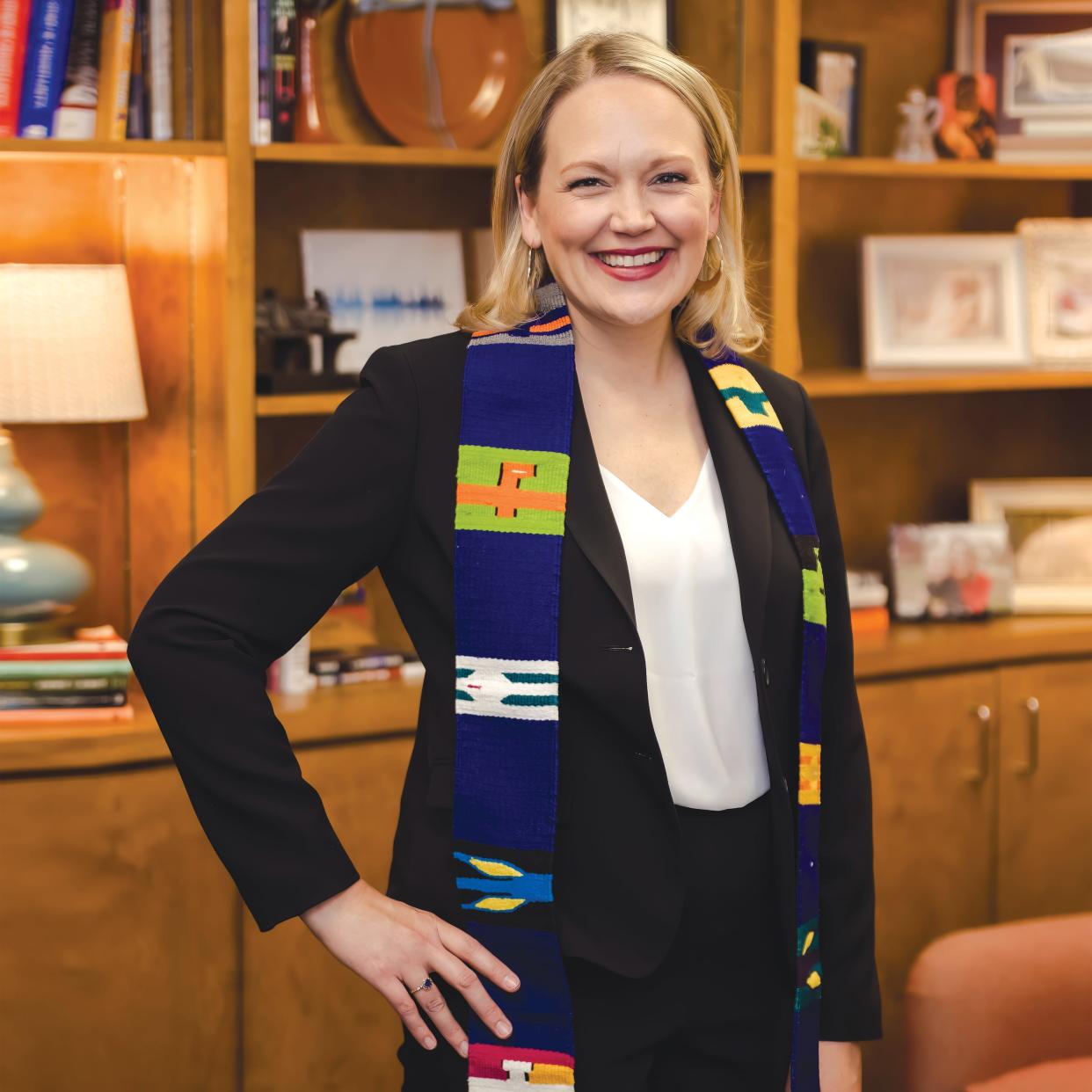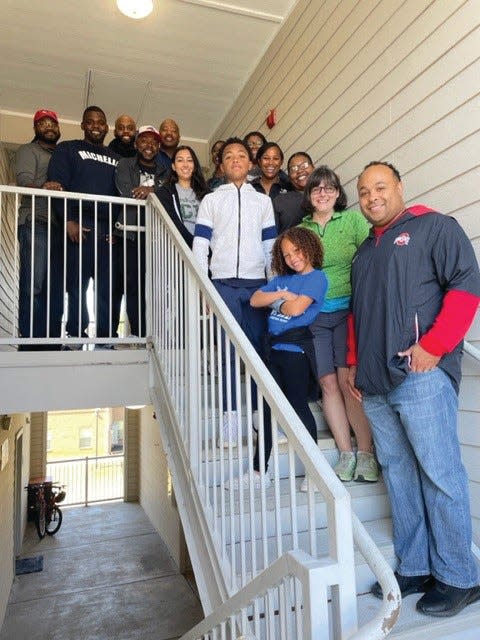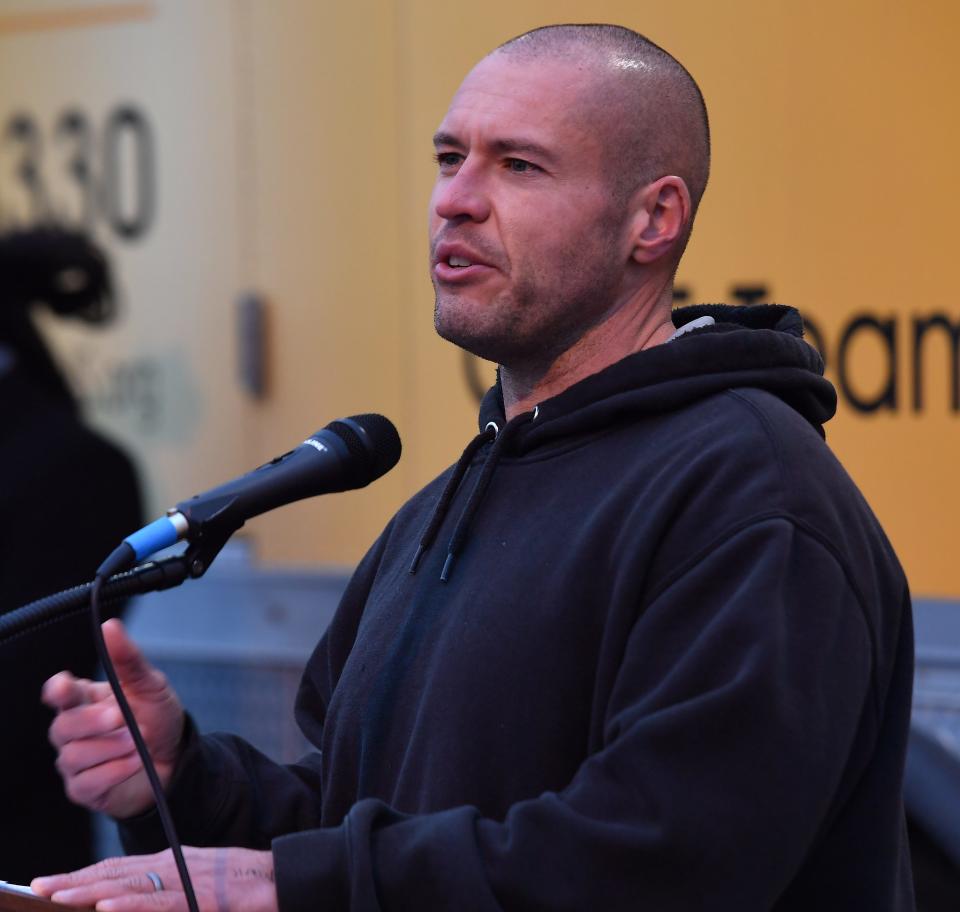Tackling issues of homelessness, poverty among missions of Greenville's United Ministries

Five congregations in Greenville came together 52 years ago around a mission to address the needs of people in crisis.
That effort became United Ministries, and today it partners with over 75 member ministries of the Greenville faith community and nearly as many corporate and service entities, ranging from the United Way to the American Legion to the Greenville Drive baseball team.
United Ministries, its staff and its programs have grown. But its roots remain where they were planted – with a mission to serve and empower individuals and families on their journey to self-sufficiency.
The organization works with individuals and families living in poverty and experiencing homelessness through programs that include crisis assistance, housing, adult education, financial coaching, mental health counseling and matched savings.
Opinion:Opinion: Compassion is at the core of United Ministries' work in Greenville

Though partner congregations and organizations may differ as much as the people they serve, United Ministries focuses on commonality, says Executive Director Lizzie Bebber.
“We are a nonprofit that delights in engaging the community in service to our participants,” says Bebber, who took the helm at United Ministries in April of 2020 – weeks after COVID-19 began making life even more difficult for those who were struggling and thrust many others into poverty or uncertainty.
“Many congregations and places of worship have a central theme of service to others. Loving God. Loving neighbor. What we do well is bring them together around that common theme.”
Lizzie Bebber United Ministries Executive Director
“We bring different faith groups together around key social issues, both for investment, as well as involvement. Many of those congregations and places of worship have a central theme of service to others. Loving God. Loving neighbor. What we do well is bring them together around that common theme.”
Taking the position at United Ministries meant leaving Washington, D.C., where Bebber and her husband and two young children lived and worked on-site as part of Christ House, a respite facility for homeless men who are sick.
The couple had begun thinking about moving closer to family in North Carolina and Mississippi, where Bebber grew up. Then she learned about the job at United Ministries.
“I learned about its mission, and it connected with my own longing for continued investment in social change and serving people who live in poverty,” she says.
Working togetherHere's how Upstate SC agencies collaborated to provide shelter, meals during arctic blast
Bebber is also an ordained Baptist minister.
“As a woman, being ordained is something I take as a great honor because of the women before me who paved the way. It's a symbol of remembering why I do the work that I do. At the core of the God that I follow is great love and delight in people, who are worthy of dignity and belonging and love. My identity as a minister reminds me of that. When I wear a stole, it’s a visible reminder that helps keep me grounded in why I do what I do.”
It’s also a reminder of how different congregations can come together.
“United Ministries has continued to call the faith community together around involvement in key social issues like poverty, homelessness and food insecurity,” Bebber says, with characteristic energy, positivity, and passion.
“That is a powerful place to stand in a world that is very divided, especially in our country. We delight in inviting different perspectives and in doing so, ask that anyone who is engaging with us commit to key values, such as dignity and belonging. We’re here to serve people well. We're here to make sure that they have a place to sleep or take a shower or achieve longer-term goals such as higher education and home ownership.”

Here's how United Ministries serves Greenville community
United Ministries provides a variety of entry points to those it serves; the best point of contact will depend on a person’s needs and readiness for change.
The Place of Hope Day Shelter provides the basics – a place for individuals experiencing homelessness to store their belongings, take a shower, or find a pair of socks and directions to the nearby Project Host kitchen. But its larger mission is to steer those who are ready toward housing, mental health and legal services, and to address issues like education and poor health that may have led to their homelessness.
Others may not be experiencing homelessness but could be one emergency away from losing the roof over their heads. United Ministries can help with emergency rent or utility payments.
The Striving to Thrive program is available to those who want to improve their lives. Participants can receive one-on-one coaching about budgets, building credit and becoming untangled from predatory loans.
But it’s families with children who need a special kind of assistance.
“Keeping families together as much as possible is key to the healing process and progress,” Bebber says.
Honoring those we lostNew Horizon pays tribute to those who died in Greenville while experiencing homelessness
Greenville families in need of housing assisted by United Ministries
In 2021-22, Greenville County Schools identified more than 1,300 children who lacked stable housing, according to United Ministries’ annual report. The children’s families were often rotating among the homes of family members or friends. Some were living out of cars or tents.
During COVID, Grace Church offered United Ministries the opportunity to lease some apartments for families in the emergency shelter program.
“They just opened their arms to us. They had a warehouse full of goods. They had volunteers. They said, ‘Hey, we can help you set up these apartments. We can help you stock them with everything you need.’ They were so gracious,” Bebber recalls.
“We wound up utilizing those spaces for almost two years,” she says.
When Grace Church ultimately invested $16 million to purchase the former student housing property at Greenville Technical College and turn it into affordable rental apartments, United Ministries was invited to partner again.
“We moved in our first families in September and have six units dedicated to emergency shelter, a 12-week program for homeless families with school-age children,” Bebber says.
The fully furnished apartments are among the few emergency shelters in Greenville County where families can stay together – whether they are single mothers or single fathers with children, large families and multi-generational families.
Added to the other apartments and homes United Ministries manages around Greenville County, they can serve 25 families.
“When people have their basic needs met or have access to a way to meet their basic needs, they're able to do incredible things,” Bebber says. “Individuals and families living in poverty cannot achieve economic mobility if they are not housed. People need a place to live.”
This article originally appeared on Greenville News: Tackling Homelessness And Poverty Is Mission Of United Ministries

